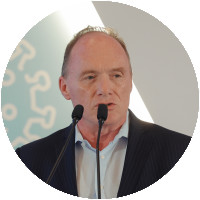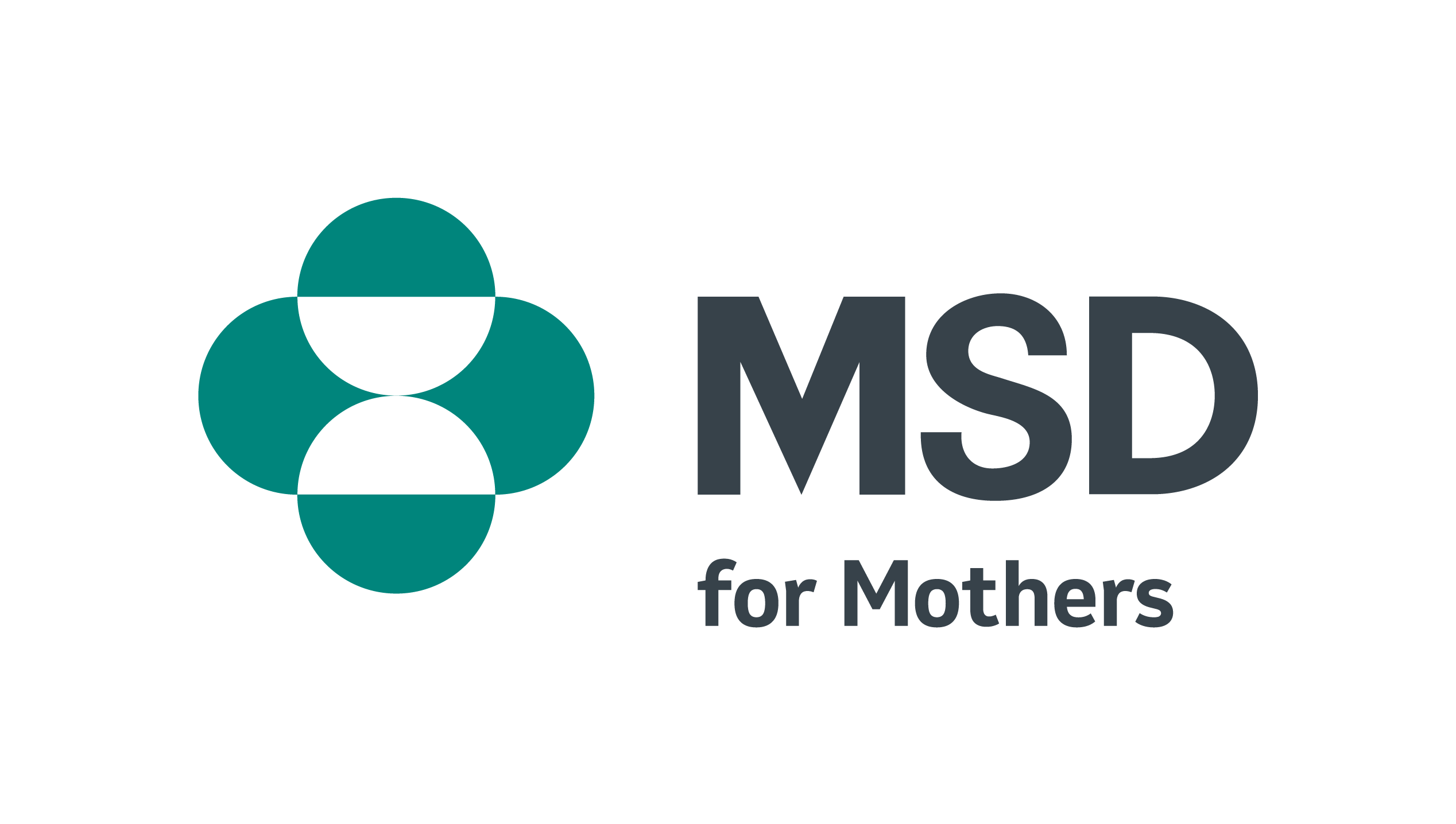A Devex event in partnership with MSD for Mothers and
the Country Connector on Private Sector in Health
Maternity Matters:
Unlocking private sector
fiscal capacity for health
system response
Tuesday, May 28 |2:30 - 3:30 p.m. CEST
About the Event
Hosted by Devex, MSD for Mothers, and the Country Connector on Private Sector in Health on the sidelines of the 77th World Health Assembly in Geneva, this event will explore how more collaborative engagement with local private sector providers can advance equitable access to quality maternal health care for mothers in LMICs.
This event will:
- Highlight the opportunity for governments to augment their capacity to address public health challenges such as maternal health through strategic engagement of the private sector.
- Feature government stakeholders why engagement with the private sector is key to driving equitable access to quality maternal health care in LMICs.
- Showcase strategic collaborations of governments’ integrating private sector capacity to meet maternal health goals.
- Explore opportunities to accelerate governments’ capacity to engage the private sector by addressing barriers, including changing perceptions and narratives around private sector engagements and putting these commitments into practice on the ground.
Register now to join the discussion on preventing maternal deaths.
---Despite the progress that has been made in recent years, the World Health Organization estimates that 800 women around the world die from preventable causes related to pregnancy and childbirth every day, with low- and middle-income countries experiencing 95% of all maternal deaths.
While many governments have responded to the maternal health crisis, progress has been slow and has regressed in some instances. As it stands, there is a $33 billion annual financing gap affecting reproductive, maternal, newborn, child, and adolescent health services. A major challenge that became very apparent during the COVID-19 pandemic is the fragility of health systems, which highlighted gaps in access to care, and the poor quality of care that exists within and across countries even in more developed settings. Given the magnitude of the challenge and the gaps that exist, it is clear that governments alone will not be able to overcome these barriers. Gaps include a shortage of health care workers, with WHO projecting an 18 million health worker shortage across low- and middle-income countries. And for the available health care workers, there is very limited access to essential supplies to treat patients adequately. For example, nearly 220 million women in low- and middle-income countries who want to prevent pregnancies do not have access to modern contraception.
For decades, dedicated efforts spanning the public and private sectors have sought to address significant barriers to achieving equitable maternal health care for all. While collective strides have been made, disparities and poor outcomes are sadly persisting at an unacceptably high rate.
To help bridge the gaps to meet the health care investment necessary, we need to maximize the full capacity of the private sector in terms of finance, delivery, and innovation to augment health system capacity, productivity, and efficiencies. We know that the private sector is already playing a significant role in many geographies and providing different services, but their capacity is often not fully utilized because they are seldom integrated into government strategies to respond to public health challenges, including maternal health.
When it comes to maternal health, there is an urgent need to prioritize safe, accessible, and equitable maternity care across health systems. WHO launched in April 2024 the document “Engaging the private sector in delivering quality maternal, newborn and child health services: A step-by-step workbook to inform analysis and policy dialogue.” This builds on previous publications from WHO’s advisory group on the governance of the private sector for Universal Health Coverage, including its strategy report on “Engaging the private health service delivery sector through governance in mixed health systems” to redress a critical health system governance gap for the effective engagement of the private sector in health in the context of UHC. That same year, the Country Connector on Private Sector in Health was launched to serve as a platform for sharing lessons, connecting countries to resources and tools needed for stronger health system governance, and better public policy toward the private sector in health. Building on this collaboration, MSD for Mothers is currently supporting WHO with its work to help countries strengthen governance in practice through its Progression Pathway approach.
Watch
Agenda
2:00 p.m. CEST
Registration
2:30 p.m. CEST
Opening remarks
• Temitayo Erogbogbo, Director of multilateral organizations engagement, MSD and advocacy lead, MSD for Mothers
• Richard Jones, Editorial Director, Devex
2:33 p.m. CEST
Fireside chat: How the private sector drives equitable access to quality maternal health care
• Dr. Austin Demby, Minister of Health, Sierra Leone
• Dr. Muyi Aina, ED/CEO, National Primary Health Care Development Agency, Nigeria
Interviewer: Rumbi Chakamba, Associate Editor, Devex
2:48 p.m. CEST
Panel: How to support public health goals by operating mixed health systems
• Dr. Patrick Amoth, acting Director General for Health in the Ministry of Health, Kenya
• Dr. Austin Demby, Minister of Health, Sierra Leone
• Dr. Muyi Aina, ED/CEO, National Primary Health Care Development Agency, Nigeria
• Omobosola Asuni, Head of public health and program director of the FOR M(om) project, Helium Health Strengthening Systems for Safer Childbirth
• Dr. Mercy Mwangangi, Director of Health Systems Strengthening, Amref
• Dr. Sanjana Bhardwaj, Deputy Director Women’s Health (Family Planning/Maternal Newborn Child Health, Women’s health innovations) and Primary Health Care, The Bill & Melinda Gates Foundation
3:13 p.m. CEST
Audience Q&A
Interviewer: Rumbi Chakamba, Associate Editor, Devex
3:23 p.m. CEST
Closing remarks
• Temitayo Erogbogbo, Director of multilateral organizations engagement, MSD and advocacy lead, MSD for Mothers
• David Clarke, Acting unit head, Health Systems Governance and Policy, World Health Organization
Introduced by: Richard Jones, Editorial Director, Devex
3:30 p.m. - 4:00 p.m. CEST
Networking
Speakers:

Omobosola Asuni
Head of public health and program director of the FOR MoM project, Helium Health

Dr. Patrick Amoth
Acting Director General for Health in the Ministry of Health, Kenya

David Clarke
Acting unit head, Health Systems Governance and Policy, World Health Organization

Dr. Muyi Aina
ED/CEO, National Primary Health Care Development Agency, Nigeria

Dr. Austin Demby
Minister of Health, Sierra Leone

Dr. Sanjana Bhardwaj
Deputy director of women's health and primary health care, Bill & Melinda Gates Foundation

Temitayo Erogbogbo
Director of multilateral organizations engagement, MSD and advocacy lead, MSD for Mothers



